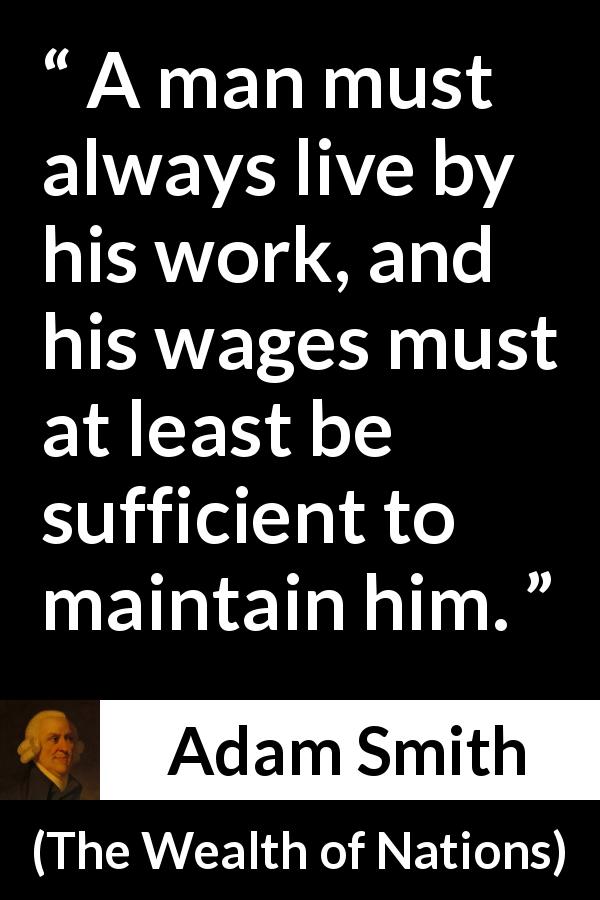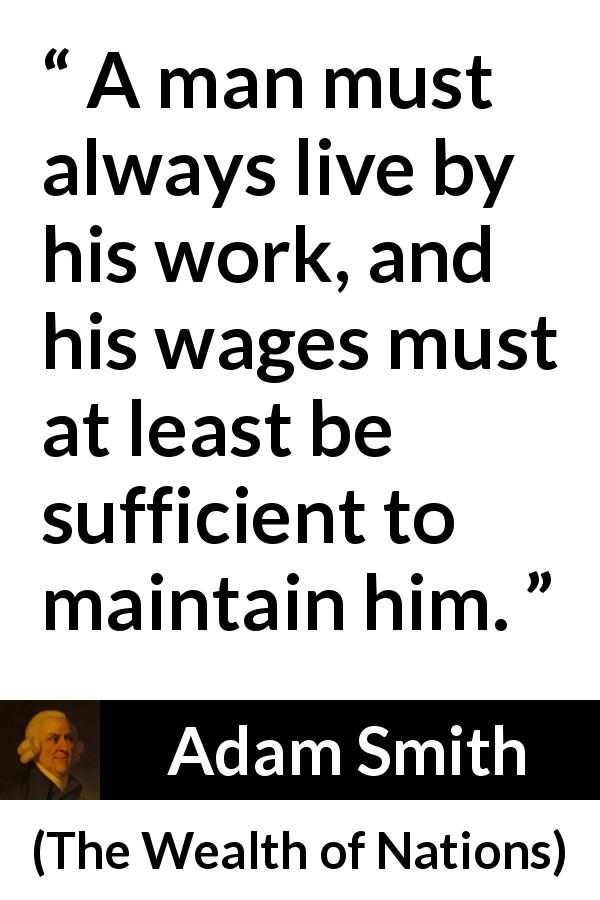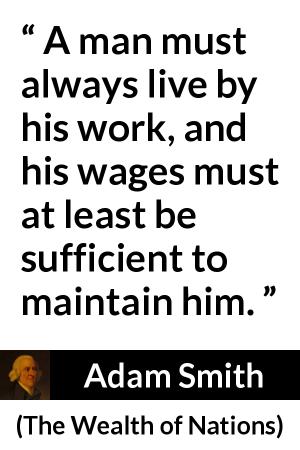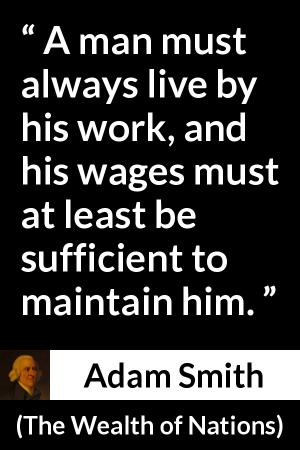“ A man must always live by his work, and his wages must at least be sufficient to maintain him. ”
Adam Smith, The Wealth of Nations (1776). copy citation
| Author | Adam Smith |
|---|---|
| Source | The Wealth of Nations |
| Topic | work wages subsistence |
| Date | 1776 |
| Language | English |
| Reference | An Inquiry into the Nature and Causes of the Wealth of Nations |
| Note | |
| Weblink | http://www.gutenberg.org/files/3300/3300-h/3300-h.htm |
Context
“But though, in disputes with their workmen, masters must generally have the advantage, there is, however, a certain rate, below which it seems impossible to reduce, for any considerable time, the ordinary wages even of the lowest species of labour.
A man must always live by his work, and his wages must at least be sufficient to maintain him. They must even upon most occasions be somewhat more, otherwise it would be impossible for him to bring up a family, and the race of such workmen could not last beyond the first generation. Mr Cantillon seems, upon this account, to suppose that the lowest species of common labourers must everywhere earn at least double their own maintenance, in order that, one with another, they may be enabled to bring up two children; the labour of the wife, on account of her necessary attendance on the children, being supposed no more than sufficient to provide for herself: But one half the children born, it is computed, die before the age of manhood.” source
A man must always live by his work, and his wages must at least be sufficient to maintain him. They must even upon most occasions be somewhat more, otherwise it would be impossible for him to bring up a family, and the race of such workmen could not last beyond the first generation. Mr Cantillon seems, upon this account, to suppose that the lowest species of common labourers must everywhere earn at least double their own maintenance, in order that, one with another, they may be enabled to bring up two children; the labour of the wife, on account of her necessary attendance on the children, being supposed no more than sufficient to provide for herself: But one half the children born, it is computed, die before the age of manhood.” source























